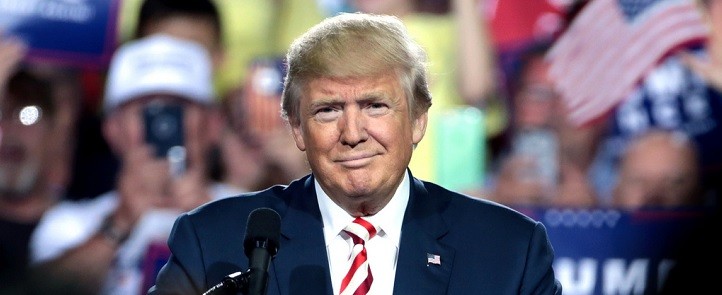
Judicial Watch: Court Hearing Scheduled on the Declassification and Release of ‘Electronic Communication’ Used to Launch Obama Administration’s Spy Operation on President Trump’s 2016 Campaign

(Washington, DC) Judicial Watch announced today that Federal District Court Judge Carl J. Nichols ordered a hearing in the Judicial Watch Freedom of Information Act (FOIA) lawsuit involving the full declassification and release of the “electronic communication” (EC) that officially launched the counterintelligence investigation, termed “Crossfire Hurricane,” of President Trump’s 2016 presidential campaign.
Date: Wednesday, September 1, 2021
Time: 10:00 a.m. ET
Location: Courtroom 19
U.S. District Court District of Columbia
333 Constitution Ave NW
Washington, DC
The hearing will address Judicial Watch’s argument against the Department of Justice’s (DOJ) attempt to close the case and withhold a full, unredacted version of the EC. In May 2020, Judicial Watch obtained a redacted version of the EC, which was written entirely by former FBI official Peter Strzok.
Judicial Watch filed the September 2019 FOIA lawsuit after the DOJ and FBI both failed to respond to identical July 11, 2019, FOIA requests, which asked for access to a single record: “The Electronic Communication that initiated the counterintelligence investigation of President Trump’s 2016 presidential campaign.” (Judicial Watch v. U.S. Department of Justice (No. 1:19-cv-02743))
In its effort to close the case, the Biden DOJ argues that there is not significant public interest in the full contents of the EC that initiated the counterintelligence investigation of former President Trump’s campaign and Russian interference in the 2016 elections.
Judicial Watch filed a motion countering that, “Disclosure of the full EC advances the public’s right to know what the government did, who was involved, and why the investigation into Trump and Russian interference was necessary.”
Judicial Watch cites two declarations from Kevin Brock, former assistant director of the Directorate of Intelligence and former principal deputy director of the National Counterterrorism Center (NCTC) for the FBI. Brock testified that it is not standard procedure to have an EC drafted, approved, and sent to and from the exact same agent and that this is a violation of FBI oversight protocols:
In the EC document here, the “From” line indicates the EC – and authorization to begin an investigation as required under FBI policy – is from a part of the FBI’s Counterintelligence Division. The contact listed is Peter Strzok. The EC was drafted by Peter Strzok. The EC was approved by Peter Strzok. On the face of the document produced, it appears the EC that initiated a criminal FARA investigation of unidentified members of the Trump presidential campaign was created by Peter Strzok, approved by Peter Strzok, and sent from Peter Strzok to Peter Strzok. This is not usual procedure.
FBI policy prohibits an agent from initiating and approving his or her own case. Such action violates FBI oversight protocols put in place to protect the American people from an FBI agent acting unilaterally.
***
In fact, the EC does not identify any individual by name as a target of the investigation. It does not articulate any factors that address the elements of FARA as required by routine FBI policy and procedure and the Attorney General Guidelines and, therefore, does not contain sufficient justification for initiating an investigation into USPERs [U.S. persons].
Based upon my experience, no reasonable and experienced FBI counterintelligence squad supervisor in the field would have approved the EC at issue here – as released – which opened the Crossfire Hurricane investigation.
The unredacted information released in the EC document here offers no legitimate predication justifying the investigation of USPERs involved in a presidential campaign or subsequent FISA intercept of a U.S. citizen.
###
















